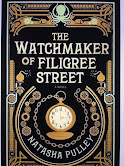Cultivating Inspiration
by Theresa Gauthier
A miracle occurs: for whatever reason, you find yourself with a block of time not earmarked for some other activity. You crack open your laptop, open your unfinished manuscript, and—stare at a blank page.
The words you’ve already written feel flat. Typing a word or two hoping to start the flood of imagination you think you should be navigating at this moment doesn’t help. Frustrated, you close it down and do something else.
All writers have been there. When you don’t have the time, you find yourself with an idea. When you have the time, you’re a blank.
Inspiration isn’t always at our disposal when we want it to be. What can a writer do to coax the spark of creativity?
Cultivating inspiration might seem a little counter-intuitive. Inspiration seems more ethereal, esoteric, a whim of the muses bestowed at unpredictable times. How, then, might we be able to channel it at our need?
Writing has to be as much a part of your routine as brushing your teeth, washing your face, and getting dressed. As writers, we should carve out time—not even that much, just 15 minutes a day if that’s all we have—for writing and everything that goes with it.
What goes with it? Well, there’s research, there’s character building, world building—planning. Yes, not every writer plans, but if you do, or if you’re trying to become more of a planner, (and certainly if you’re writing an epic sci-fi or fantasy novel that spans decades, worlds, or eons) then you need to approach it as the process it is.
Inspiration comes at odd times and sometimes with no discernible thought process to herald its arrival. The other day, for no apparent reason, I had a thought about my novel while I was driving. It was enough of a thought that I couldn’t wait to get back to my manuscript. When I finally did, however, it was diluted. I remembered it but the excitement it had brought to me was gone leaving a pale suggestion of it behind.
What should I have done?
There are a few things. Making a voice memo, jotting down the ideas as soon as I parked my car, stoking the idea at random times as I was doing my day job so that the excitement didn’t fade, and forcing myself to sit down and write it all out the moment I got home could have kept the notion exciting enough that a slight stoking could have gotten the fire blazing once more.
There are other ways to get your creativity flowing so these instances are the norm and not a rarity.
Seek out interesting new experiences; get in the heads of your characters. You should know them well before you start to tell their stories. What sort of things do they enjoy? Is your protagonist outgoing? Try some fun activity your protagonist would enjoy with an eye towards knowing what’s fun about it. Do something your protagonist might find agonizing while scrutinizing it for the details that would drive your protagonist crazy.
Try imagining what your protagonist does for a living. You might just be able to arrange an interview with someone who works in the field as research. Learning details—jargon, pet peeves, etc—of people who do these things or similar things could just give you an idea of how much your character should love or hate their profession. If that isn’t possible, online research into the job, the education needed before you can get the job, etc, will provide more insight into the character.
Nature can be inspiring. How would your characters react to various outdoor situations? Is he a city boy unable to cope with anything too rural? Does the idea of camping excite or terrify? Is she more comfortable skiing on a snowy mountain or on a stretch of blue-green ocean or bay? Are there any phobias? A fear of flying? A fear of open water?
Some writers change the music they listen to based on the story they’re trying to write. Some find music distracting. Some fine certain types of music soothing—able to chase away distraction and inspire the mood of whatever scene requires their attention. However you prefer it, music can be an important addition to your writing routine.
Light is important to me. I prefer a bright, well-lit workspace with many windows, light colored walls, and a few lamps providing maximum light. A dark, windowless area is not conducive to my writing process. I imagine to some it’s the opposite. I’ve noticed a lot of artists and designers seem to like to work in spaces I would consider dark and dismal. Only you can know which works for you.
Whatever you decide upon as you search for your inspiration, don’t be afraid to experiment. Different things might inspire different stories. Even if you’ve been writing for years and your process and your inspiration are set, changing it up might lead to surprising results.








Comments
Post a Comment